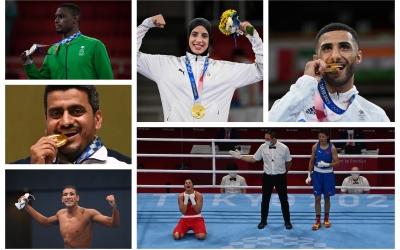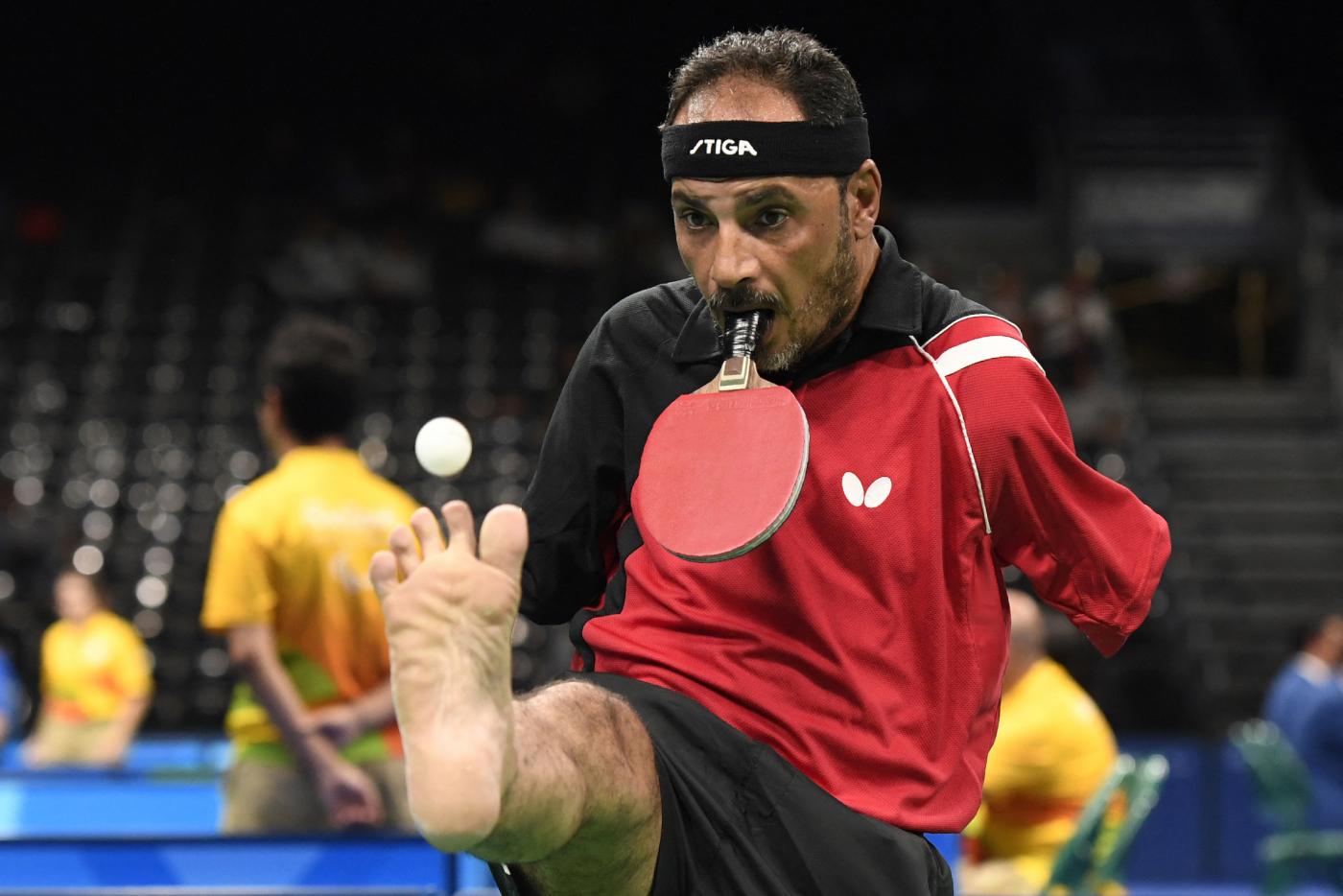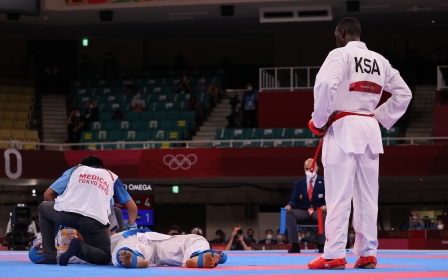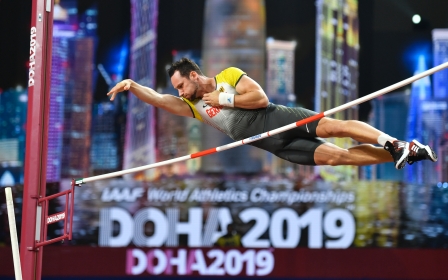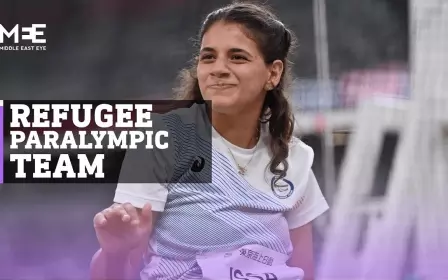Tokyo Paralympics: The top Middle East and North Africa moments
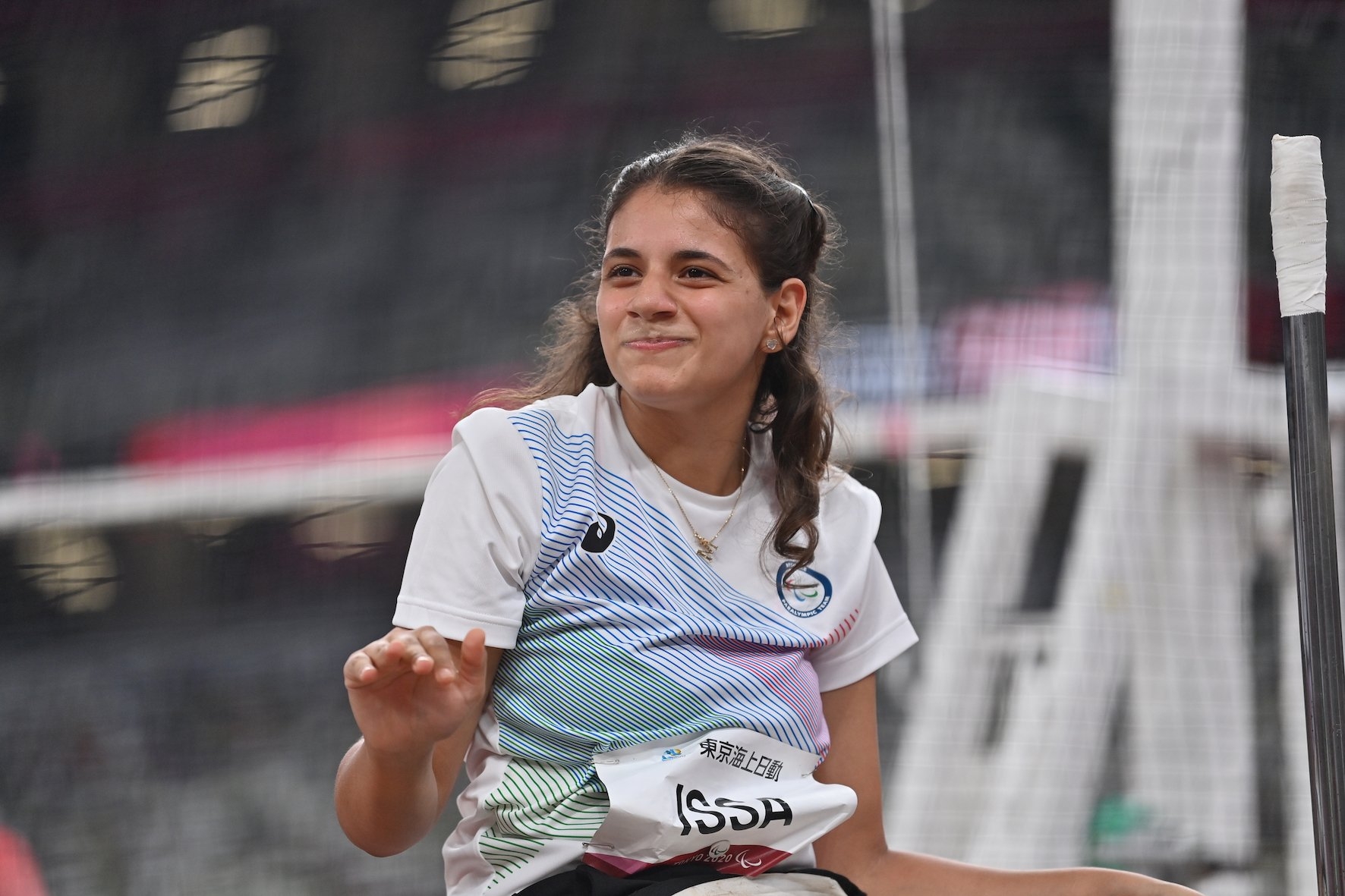
The 2020 Paralympic games in Tokyo ended on Sunday, after a year-long delay brought on by the Covid-19 pandemic.
Immediately following the Olympics, the games showcase the athletic prowess of participants who have a diverse spectrum of physical impairments.
New MEE newsletter: Jerusalem Dispatch
Sign up to get the latest insights and analysis on Israel-Palestine, alongside Turkey Unpacked and other MEE newsletters
More than 4,400 athletes from 162 countries participated in the games with athletes from 14 countries across the Middle East and North Africa winning medals.
This year's event provided no shortage of inspirational achievements and heartwarming displays of sportsmanship.
From the record-breakers to the remarkable stories of overcoming adversity, Middle East Eye takes a looks at the top Middle East and North Africa highlights from the Tokyo 2020 Paralympic games:
Captivating skill
One striking image captured the world’s attention during the 2020 games: a table tennis player who had lost his arms and instead held the paddle in his mouth, using his feet to serve.
Ibrahim Hamadtou, a 48-year old Egyptian, became an image of perseverance and determination at the games.
The athlete was only 10-years-old when he lost both his arms in a train accident but Hamadtou did not let that hinder him.
“I was in the club where I was officiating a match between two of my friends,” Hamadtou said in an interview with the International Table Tennis Federation.
“They disagreed on a point. When I counted the point in favour of one of them, the other player told me, do not interfere as you will never be able to play. It was that statement that fired me up to decide to play table tennis.”
Hamadtou's story has inspired people across the globe with thousands of social media users sharing images and videos of Hamadtou, praising the athlete for his abilities. The Egyptian crashed out to China's Chen Chao at the group stage.
'What politics separate, sports unite'
Hamadtou's participation was just one of the enduring images of the games, another came amid worsening tensions between Algeria and Morocco and demonstrated the ability of sport to transcend fissures caused by politics.
The Algerian delegation had won three gold medals, one of which was Skander Djamil Athmani's triumph in the men’s 400-metre T13 event on 2 September, breaking a world record with a time of 46.7 seconds.
Athmani finished ahead of Morocco’s Mohamed Amguoun, who secured a silver medal by ending a single second after Athmani.
Notably, Amguoun was also the previous world record holder in the event with a time of 46.92 seconds, which he set at the 2017 World Championships in London.
The race came in the aftermath of Algeria’s announcement that it was officially severing ties with Morocco after months of tensions between the two countries, a context that could have led to some awkwardness on the podium.
Instead, it was an image of Athmani and Amguon embracing after the race that made the headlines.
Translation: What politics separate, sports unite...A photo of Algerian runner, Skander Djamil Athmani and Moroccan Mohamed Amguoun at the Tokyo Paralympics.
Refugee paralympic team make history
Athletes from across the Middle East represented their delegations in Tokyo. But one team, in particular, made history; the Refugee Paralympic Team (RPT).
Made up of six individuals, the team represents the over 82 million people around the world who have been forced to flee their homes as a result of war, persecution, and human rights abuses. Around 12 million of those individuals live with a disability.
Four of the six athletes who made up the RPT were of Middle Eastern origin: Anas al-Khalifa, Alia Issa and Ibrahim al-Hussein from Syria, and Shahrad Nasajpour from Iran.
Alia Issa, born in Greece to a Syrian refugee, stood out from the already noteworthy group as the first female refugee Paralympian. The 20-year-old was the flag-bearer for the team alongside swimmer Abbas Katimi.
The athlete then went on to throw a personal best of 16.50 meters in the women’s club throw event on 27 August.
Issa was only four when she contracted an illness, suffering brain damage as a result of a high fever.
She now hopes to be an example to young women with disabilities and other female refugees like herself.
Talking of her role in the games, Issa said: “I never believed I would be in the Paralympic Games once in my life and I can’t believe I'm the first woman. It's a big tournament.”
Breaking records
A number of world and Paralympic records were broken during the games, with athletes from the Middle East and North Africa joining the ranks of the record breakers.
Athletes included Tunisia’s Raoua Tlili, who topped the podium after registering a 37.91-metre distance in the discus throw. The win was the sixth gold medal of her career.
Meanwhile, Sareh Javanmardi from Iran broke both the world and Paralympic record in the 10-metre air pistol SH1 event with 239.2 points.
On 4 September, Morocco's Ayoub Sadni won the Men’s 400m T47 with a time of 47.38 seconds.
His compatriot El Amin Chentouf won gold in the Men’s marathon T12 for a second consecutive Paralympic Games. The three-time Paralympian beat the record set at London 2012 with a new time of 2 hours 21 minutes, 43 seconds.
Two Algerian athletes also broke records on the same day. Skander Djamil Athmani smashed the world record in the men’s 400-metre T13 event, while Safia Djelal set a new world record in the women’s shot-put F57 event, with a staggering distance of 11.29 metres.
Middle East Eye delivers independent and unrivalled coverage and analysis of the Middle East, North Africa and beyond. To learn more about republishing this content and the associated fees, please fill out this form. More about MEE can be found here.


